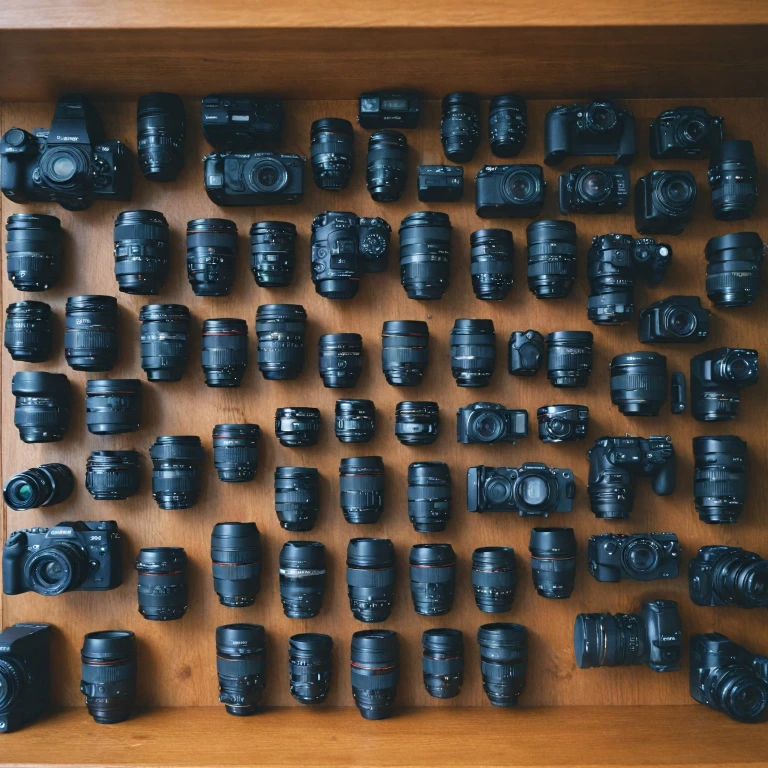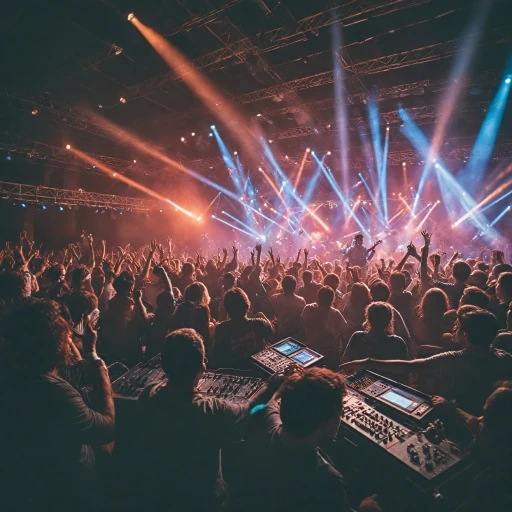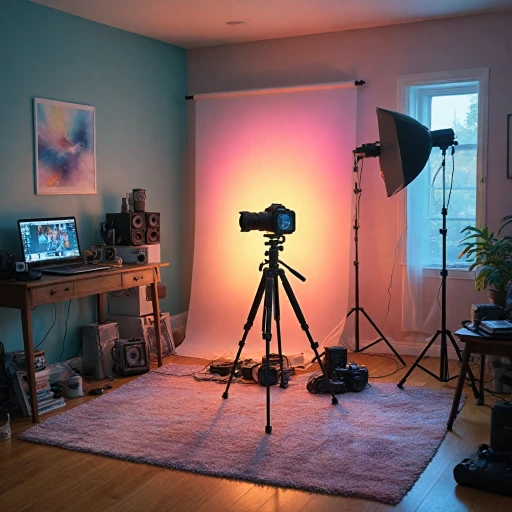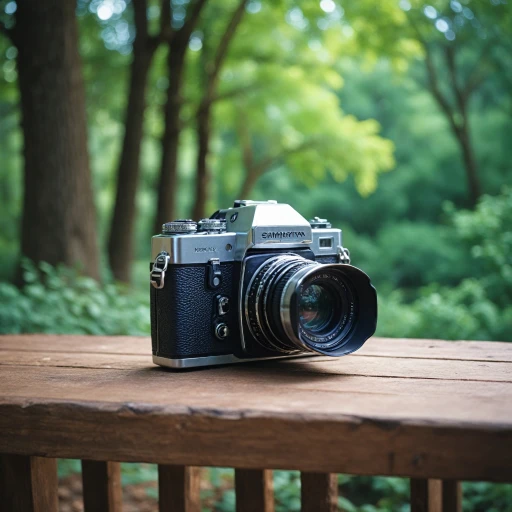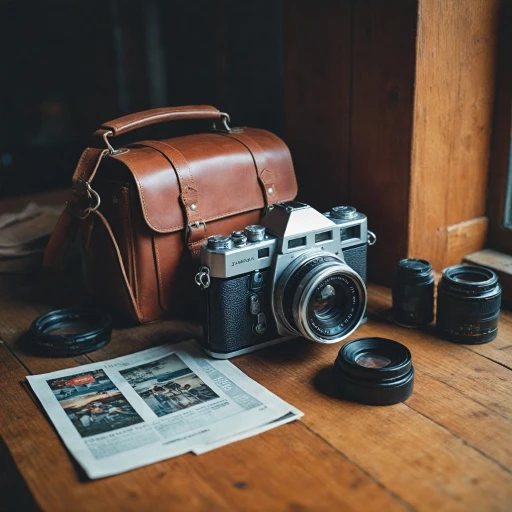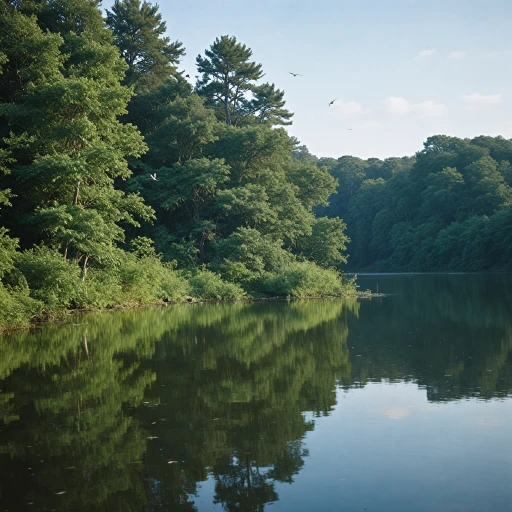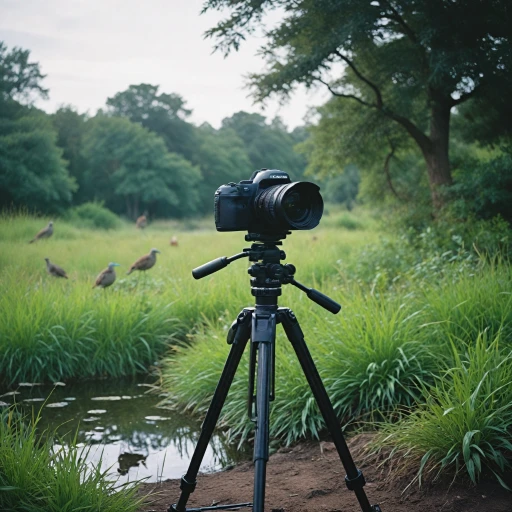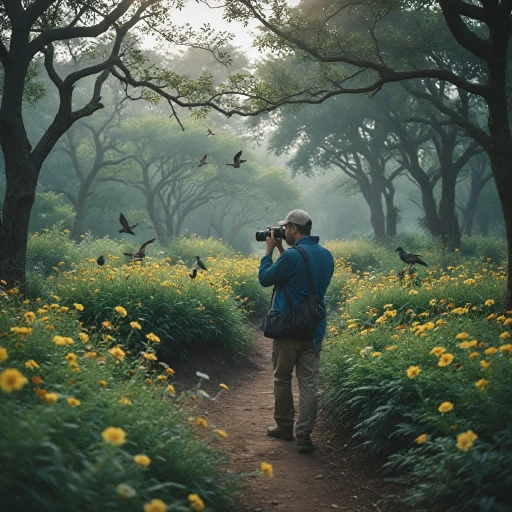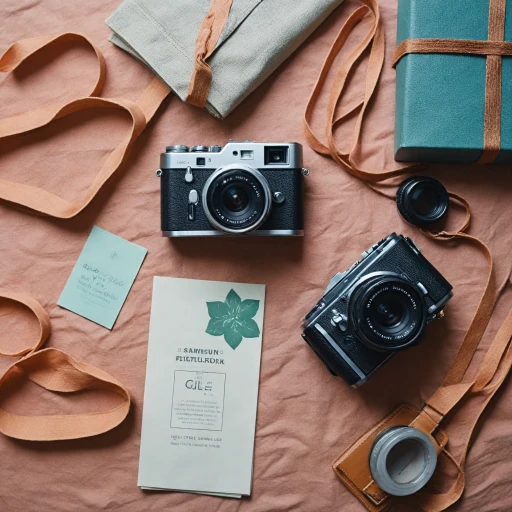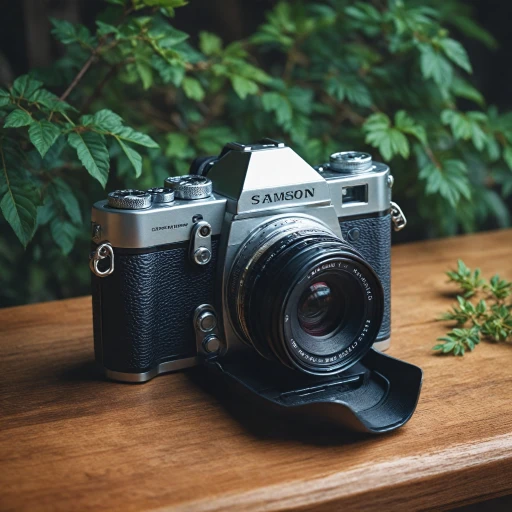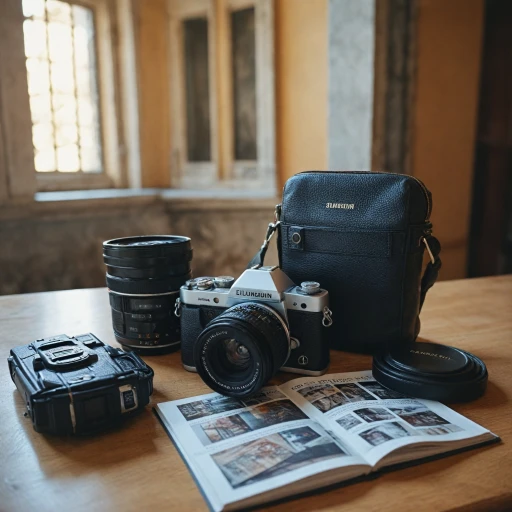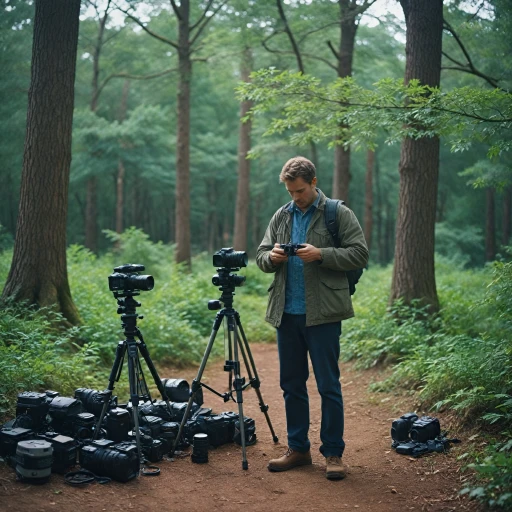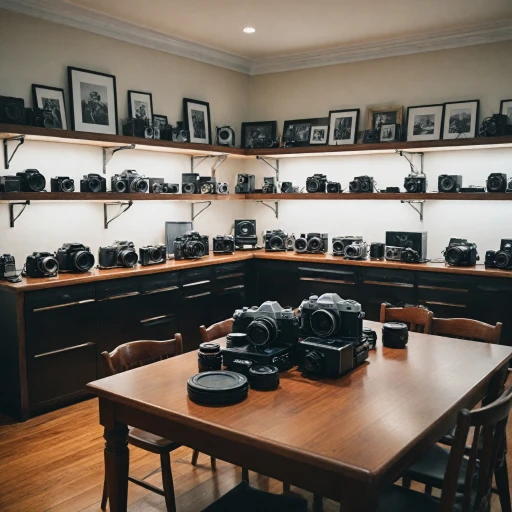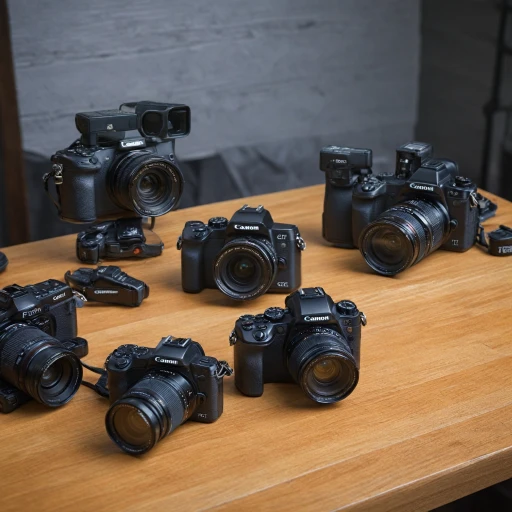
Understanding Your Photography Needs
Identifying Your Photography Preferences
Understanding your photography needs is the first crucial step to finding the right digital camera for beginners. Before diving into the world of cameras, it's essential to reflect on what you aim to achieve with your new purchase. Are you interested in capturing stunning landscapes, or perhaps you're more inclined towards vibrant portraits? Begin by identifying whether your focus is more on still photos or if you wish to explore video capabilities as well. Many beginners prefer digital cameras with dual functionality to cover both photography and videography. If high resolution or full frame options appeal to you, prioritize your choices accordingly. Additionally, consider how frequently you'll be using the camera. Will it be a constant companion on your travels or more of an occasional hobby tool? These factors will guide you towards choosing a camera with suitable features, such as weight, portability, and battery life. For more insights on refining your camera selection process, check out the art of choosing a wise eye camera which offers valuable guidance for beginners. Reflect on any specific preferences you might have. Do mirrorless cameras catch your eye due to their lightweight and compact body? Products like the Sony Alpha series offer great quality for both image and video enthusiasts, making them popular among camera beginners. On the other hand, brands like Canon and Fujifilm provide excellent options for both entry-level DSLRs and mirrorless camera models. Your journey into photography should be an enjoyable one, guided by a camera that inspires creativity. By aligning your photography needs with the right product, you're setting the foundation for a rewarding experience.Key Features to Look for in a Beginner Camera
Essential Features for Novice Photographers
When you're just starting your journey in photography, knowing key features of a camera can make a significant difference in the experience you have and the quality of your photos. Here’s a straightforward guide to help you navigate what to look for when selecting a camera as a beginner.- Camera Type: Decide between a mirrorless camera and a DSLR. While DSLRs have long been favored for their variety of lenses and durability, mirrorless cameras are increasingly popular due to their lighter and more compact design, offering excellent video and image quality.
- Resolution: Look for a camera with at least 16 megapixels for quality images. More megapixels give you flexibility in cropping and printing your photos, but they aren’t the only factor in determining image quality.
- Sensor Size: A larger sensor, such as full frame, often produces better images with higher detail and less noise, especially in low-light conditions. This can be quite beneficial for beginners who desire high-quality photos as they learn.
- Autofocus: Fast and accurate autofocus is crucial for capturing sharp images. Consider cameras with reliable and responsive autofocus systems, which are often praised in customer reviews, such as the Sony Alpha or Canon EOS models.
- Ease of Use: Cameras like Canon's EOS Rebel series and Fujifilm's X-T series are well-regarded for their user-friendly interfaces that help beginners get comfortable with camera settings quickly.
- Interchangeable Lens: The ability to change lenses offers versatility and will grow with your skills. For those just venturing into photography, starting with a standard zoom lens is a great way to explore different styles, from landscape to portrait photography.
- Video Capabilities: If you're interested in video, choose a camera with at least Full HD resolution (1080p). Many cameras, including affordable entry-level options, now offer excellent video quality, allowing you to experiment with content creation right from the start.
Budget Considerations for First-Time Buyers
Ballparking Your Budget for First-Time Camera Purchases
Finding a balance between cost and quality is crucial when you're embarking on your photography journey. As you sift through various digital camera options, understanding your financial boundaries will guide you in selecting the best camera for your needs. Buying a camera is not just about the initial purchase. Consider these essential factors when evaluating the overall cost:- Camera Body: Opt for an entry-level digital camera that meets your requirements without emptying your wallet. Camera beginners often find great choices within the Canon EOS or Sony Alpha series.
- Lens Selection: A versatile lens enhances your camera's capability. Initially, a kit lens will suffice; however, investing in additional lenses like a zoom lens can expand your photography horizons.
- Video and Photo Features: If your interest lies in both video and photography, ensure the camera offers suitable specs such as a high-resolution sensor for excellent image quality. Some mirrorless cameras serve as fantastic options here.
- Additional Accessories: Don’t overlook the cost of essentials like memory cards, camera bags, and tripod stands. These extras can impact your budget too.
- Future Upgrades: Plan for potential upgrades. As your skills in photography develop, you may wish to invest in higher-quality gear.
Comparing Popular Camera Models for Beginners
Exploring Popular Beginner Camera Models
When choosing a camera, it's essential to compare some of the most popular options available on the market. Deciding between different types such as DSLR, mirrorless, and compact point-and-shoot cameras can greatly impact your photography journey.- Canon EOS Series: The Canon EOS series is a staple for many beginners, offering a range of models that cater to different experience levels. Known for their excellent image quality and user-friendly interfaces, these cameras are great for entry-level photographers. With a compact design, they provide a great balance between quality and portability.
- Sony Alpha Series: Sony has made significant strides with their mirrorless cameras, particularly in the Sony Alpha series. These cameras are lightweight, perfect for those who prioritize portability without sacrificing image quality. Their advanced autofocus systems and high-resolution sensors make them a popular choice among beginners and content creators alike.
- Fujifilm Models: Fujifilm cameras stand out for their retro design and innovative digital features. Known for their excellent color reproduction, these cameras might appeal to those passionate about image aesthetics. Beginner models often include intuitive controls, making them accessible to those new to photography.
Tips for Making the Most of Your New Camera
Maximizing Your Camera's Potential
Once you've selected the right camera for your needs, it's time to focus on how you can optimize its capabilities for the best photography experience. Here are some tips to help you make the most of your new digital camera:
- Read the Manual: It may not be the most exciting read, but the manual is packed with important information specific to your camera model. Understanding your camera body features and button placements can significantly enhance your efficiency.
- Know Your Camera's Modes: Familiarize yourself with the various shooting modes, such as aperture priority, shutter priority, and full manual. These will give you greater control over your images and are key features to look for when buying the best camera for beginners.
- Experiment with Lenses: If your camera supports interchangeable lenses, don't hesitate to try different lenses to find out which one suits your photography style best. A quality lens can vastly improve image quality, whether you're using a mirrorless camera or a traditional DSLR.
- Utilize Autofocus: Many beginners make the mistake of underutilizing their camera’s autofocus features. Take advantage of the advanced autofocus systems available in both mirrorless cameras and DSLRs to ensure sharp, high-resolution photos.
- Learn Basic Editing: Use photo editing software to enhance your images post-shoot. This can help in correcting minor imperfections and enhance the final look of your photos, allowing you to achieve the best possible image quality.
- Seek Feedback: Engage with online communities or social media for constructive criticism and tips from other photographers. Reviews product and customer reviews can also provide insights on how to use your specific camera model effectively.
Remember, practice is key to unlocking the full potential of your camera. Keep experimenting and continue to develop your style and technical skills in photography. For more on advancing in photography, explore comprehensive guides on how to improve your skills.
Common Mistakes to Avoid as a Beginner Photographer
Steer Clear of Overlooking the Basics
Photography as a beginner seems thrilling with all camera features available, but the basics are a common pitfall. Embrace learning the technical side of your digital camera, such as how the sensor impacts image quality, the role of the lens, and understanding camera body functions. Once you're able to navigate these essentials, you'll find utilizing your camera for both photos and video much more rewarding.
Avoid Falling for All Features
While beginners often find mirrorless cameras appealing because of their compact size, ensure that you focus on the core needs discussed in earlier sections. Don’t be swayed by every bell and whistle: high resolution, full-frame sensors, or advanced image stabilization might be tempting, but not essential at the beginning. Keep it simple and focus on what's best for you.
Be Careful with Upgrades
It's easy to believe that purchasing a new lens or upgrading to a different product will instantly improve your photos. Technology in cameras, like Canon EOS or Sony Alpha, delivers great image quality, but learning how to optimize your current gear often reaps better rewards than consistently upgrading.
Review Before You shoot!
Take advantage of customer reviews and expert critiques. Sites discussing camera beginners offer insights into image credit capabilities, quality, and even common issues with certain mirrorless or point and shoot cameras. Learn from other beginners before you make a purchasing decision.
Practice Makes Perfect
The best camera in the world won't deliver stunning images unless you consistently hone your skills. Referencing tips and comparisons outlined earlier can guide your practice sessions. Capture a variety of scenes and experiment with your camera settings to become comfortable and creative with your photography style.

